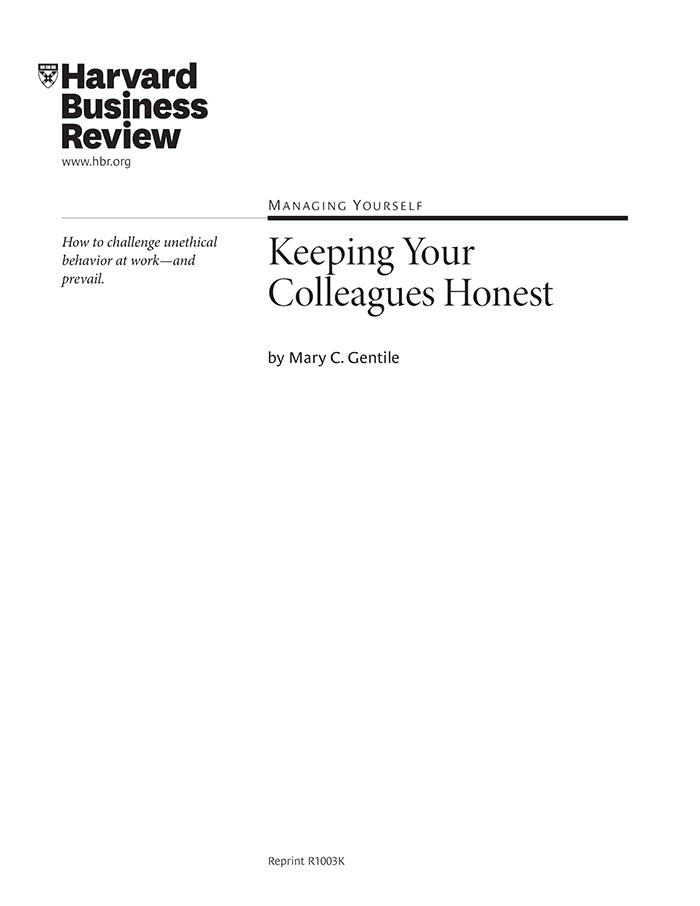Keeping Your Colleagues Honest
受取状況を読み込めませんでした
Just promoted from the accounting group at headquarters, Jonathan is now the controller for a regional sales unit of a consumer electronics company-and he realizes in short order that the next quarter's sales are being reported early to boost bonus compensation. The group manager's silence suggests that this sort of thing has probably happened before. This may seem like a mundane accounting matter, but the consequences-in terms of carrying costs, distorted forecasting, compromised ethical culture, and even legal ramifications-are very serious. And except in extraordinarily well-run corporations, managers face situations like this all the time. You know something's wrong. You know you need to make it stop. But you don't necessarily know when to speak up, how to speak up, and, most important, how to be effective. Drawing on the author's research over the past four years, this article walks you through the rationalizations commonly used to justify unethical behavior-everything from "this is just how things work in our industry" to "it's not your job to fix this; stick to your knitting." It also gives concrete advice about how to raise your voice effectively. For example, treat the conflict as a business matter. Nobody wants to hear a self-righteous little speech about honesty, so get your facts in order and present them effectively. You should also challenge the rationalizations. If this is "just how things work," ask whether the organization is comfortable going public with the practice. All managers should know how to respond constructively to ethical issues, and senior managers must be able to change the cultural norms that gave rise to bad judgment in the first place.
【書誌情報】
ページ数:12ページ
サイズ:A4
商品番号:HBSP-R1003K
発行日:2010/3/1
登録日:2012/3/28


